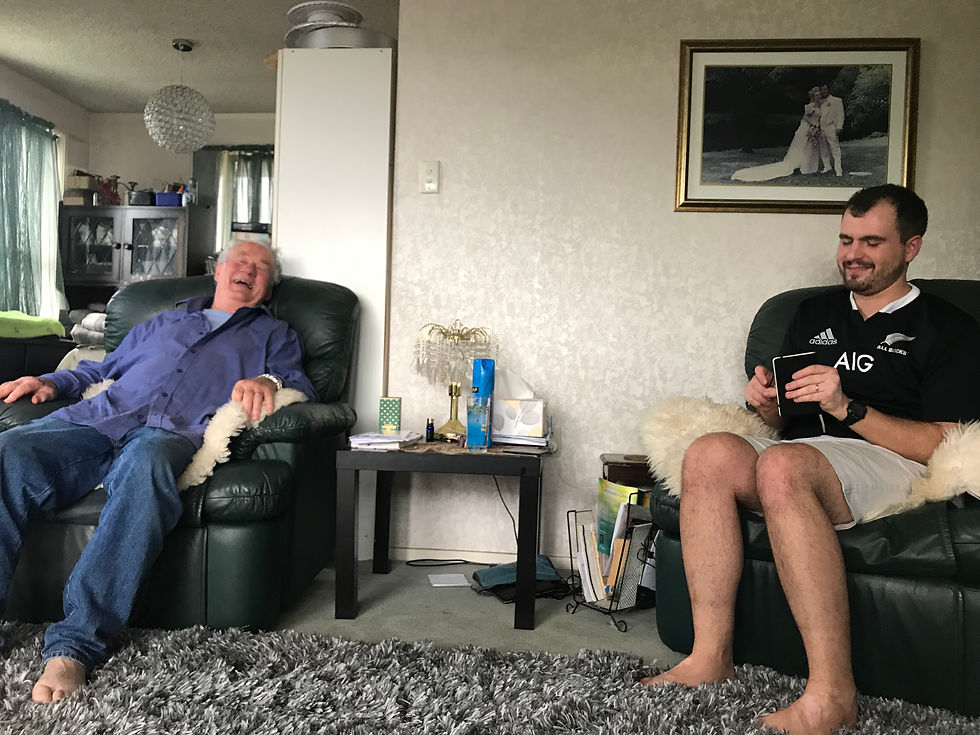The Humanizing Effect
- Joseph R. Goodall

- Jan 16, 2021
- 4 min read

I feel a great draw to understand the “why” behind the emotions and decisions of people around me, to “humanize” them. Sometimes it’s because I want a gloriously confusing world to make more sense, but at my best it’s because I crave belonging and connection, to be seen and known and for others to experience the same.
Stories can inspire us to love and reach out for connection, and yet stories can also stoke the flames of anger and hatred. Stories can encourage us to understand another perspective or to tear it down; they can cut to the heart of our fears with encouragement or monopolize on them with ulterior motives. While stories are not categorically dualistic, I believe that if we're not careful, they can gravitate us to these extremes because a stark contrast between “good and evil” is much easier to dwell in than the “discernment of the gray” that real life often requires.
Facts are important and crucial, but the human heart does not often respond to them. We are not simply cold, calculating machines, but rather beings with a mysterious, complex makeup of emotions, desires, beliefs and dreams. And we must therefore be careful with our hearts; because stories, if we allow them, can enflame us to act for great evil or for great good.
From my perspective, witnessing the Storming of the United States Capitol Building on January 6th, 2021, was to see a great symbol of democracy and political checks and balances both threatened and dishonored. More than that, the people in the building when it was attacked - a large majority of the elected American leaders, representatives, and lawmakers acting out an event explicitly outlined in the US Constitution - were violently challenged in a way that was completely out of line with that same Document. And yet I assume the perpetrators believed they were defending their country and a President who was encouraging them to act against a perceived unfair election. While everyone is responsible for their actions, it is sobering to see the way consistently-reinforced communication around “fraud,” “fighting,” and “unfairness” can influence emotions and boil over into violence. This was certainly not the first time words have been used in this way, and it won’t be the last.
Meanwhile, symbols were erected and carried around the Capitol grounds by protesters and rioters that had a painful and violent connotation for many black and other Americans of color, representing the abhorrent streak of racism running through our American history and present. Protests of hate against specific people and people groups are not protests for justice but for a tearing away at the entire human race. While not all of the protesters at the Capitol were actively promoting racist violence, nevertheless the symbols that some were using have been employed in that way throughout American history. Words and symbols are powerful and should never be used lightly.
The events of January 6th contained the seeds of a government overthrow, the likes of which have occurred time and again throughout human history. But is that where we want our American story to take us? Or is there a greater story we can tell together?
Make no mistake, those that were disheartened by the outcome of the last election have every right and responsibility to peacefully regroup, lobby and campaign for a different outcome in the next election, as our Constitution and traditions outline. For this very reason, I will not tolerate the vilification of a significant portion of our country who voted for the losing candidate in the last election. There are valid concerns, as there are every election cycle, about where the next Administration could direct our county. The violent protesters storming the Capitol do not represent an entire voting block, demographic, or political ideology. We can condemn the violence and brazen challenging of the law while still, in appropriate ways, make space to listen to the concerns stirring beneath the offending demonstration. This should be true also about those protesting valiantly for racial justice - the violence of a few does not discount the urgent and just cry of the many. In any case, demonizing others does not aid in our efforts to protect democracy or to be better humans.
As a writer, an observer, and a fellow human, this is my journey - to listen to and render into words a myriad of human experiences in an authentic, engaging and beautiful way. It’s not easy, and sometimes it means having my stereotypes or assumptions about others challenged. With a great inner tension like a rubber band, I’m learning to humanize people, to notice all the parts of which we consist, and to recognize that there is always an intricate reality beneath the facade of each human face. Stories are an invaluable way to uncover this truth, as long as we're willing to employ discernment.
“If only it were all so simple! If only there were evil people somewhere insidiously committing evil deeds, and it were necessary only to separate them from the rest of us and destroy them. But the line dividing good and evil cuts through the heart of every human being. And who is willing to destroy a piece of his own heart?”
― Aleksandr Solzhenitsyn, The Gulag Archipelago






Comments